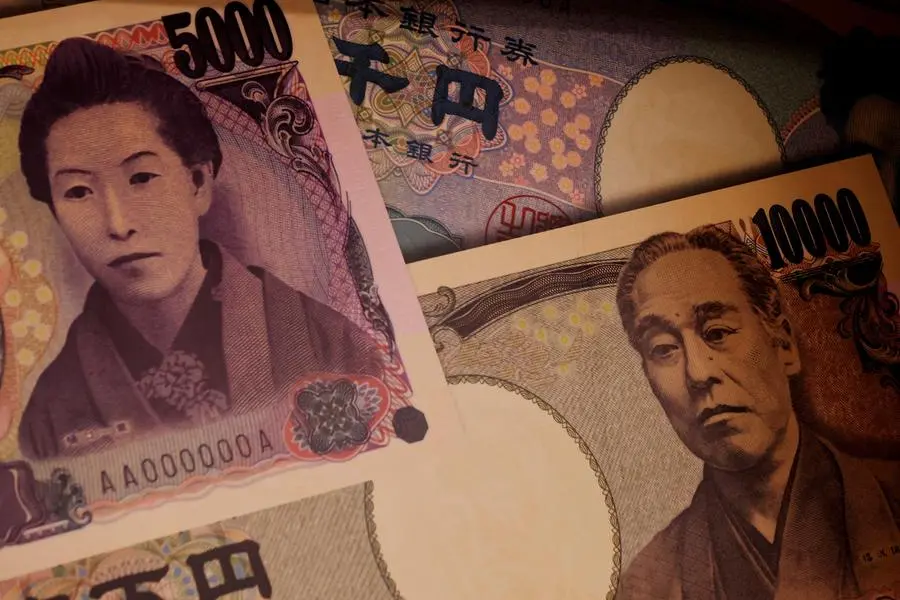PHOTO
The Japanese yen tumbled on Tuesday after the central bank made the momentous, but widely anticipated, decision to end its negative interest rate policy, while the dollar rose ahead of the upcoming Federal Reserve decision on rates.
In an historic shift from decades of massive monetary stimulus, the Bank of Japan (BOJ) ended eight years of negative interest rates and other remnants of unorthodox policy at the conclusion of a two-day policy meeting.
Still, the yen dropped by as much as 1% and weakened past 150 to the dollar after the news, as most investors had already priced in a change.
The yen last stood at 150.55 to the dollar. Against the euro , the Japanese currency similarly slid 0.7% to 163.22, around its weakest in three weeks.
"It's a classic 'buy the rumour, sell the fact.' I don't think the BOJ was going for the shock-and-awe approach this time," said Bart Wakabayashi, Tokyo branch manager at State Street.
With Japan's first interest rate hike in 17 years, the central bank said it would guide the overnight call rate - its new policy rate - in a range of zero to 0.1%, adding that it expected "accommodative financial conditions" to be maintained for the time being.
That is likely to keep pressure on the yen, as interest rate differentials between Japan and the United States remain stark.
"The market has taken it as a green light to increase the short yen positioning that was already in place, given the forward guidance from the BOJ was fairly cautious, and not really enough to draw further hawkish repricing in the Japanese rate market," MUFG currency strategist Lee Hardman said.
This week brings a raft of central bank decisions that are dominating action in the currency market, headlined by the U.S. Federal Reserve.
DOLLAR DOMINANCE
The Fed will deliver its decision on Wednesday and is widely expected to keep rates where they are, although there is a degree of uncertainty over what policymakers might signal about the likely course of monetary policy stretching into 2025.
"Anytime the Fed and the BOJ are moving policy settings at about the same time, it's always the Fed that rules and dominates the price action, even in dollar/yen," said Gareth Berry, Macquarie's FX and rates strategist.
"So the BOJ's decisions generally are, as far as the yen is concerned, a matter of secondary importance."
The dollar index, which measures the performance of the U.S. currency against six others, is around its highest in two weeks, up 0.35% on the day at 103.94.
A recent run of resilient U.S. economic data has suggested inflation is still sticky enough to deter the Fed from cutting rates too much or too quickly this year, which has boosted the dollar.
The Australian dollar dropped after the Reserve Bank of Australia (RBA) left rates unchanged on Tuesday, as expected, but watered down its guidance over the likelihood of further rate hikes.
The Aussie slid 0.7% to a roughly two-week low of $0.6513, dragging the New Zealand dollar down 0.67% to $0.6044.
Elsewhere, a broadly stronger dollar pushed the euro and sterling to two-week lows.
The euro was last down 0.2% at $1.0846, while sterling fell 0.4% to $1.2684. Against the yen, the pound gained 0.5% to trade at 190.83.
In cryptocurrencies, bitcoin fell by as much as 7% to skim two-week lows, after last week's record highs triggered some profit taking.
Bitcoin, the largest cryptocurrency by market value, was last down 7% at $62,659, while ether fell 8.7% to $3,204.
(Additional reporting by Rae Wee in Singapore; Editing by Susan Fenton and Mark Potter)





















